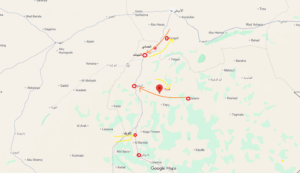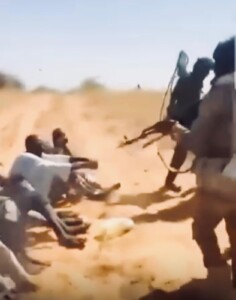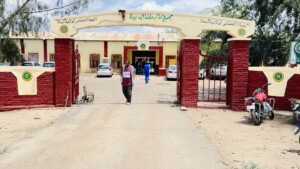Sudan’s Hausa youth plan protest escalation, but after school exams
The Hausa Youth Gathering has postponed its announced demonstrations until after the basic school exams are fully finished. They plan a protest escalation to demand the dismissal of the governor of Kassala after he refused to implement the terms of a memorandum they submitted asking to investigate the killings of Hausa protesters in July.
 Tens of thousands of people fled fierce fighting near El Roseires and Ed Damazin in Blue Nile state (social media)
Tens of thousands of people fled fierce fighting near El Roseires and Ed Damazin in Blue Nile state (social media)
The Revolutionary Hausa Youth Gathering has postponed its announced demonstrations until after the basic school exams are fully finished. They plan a protest escalation to demand the dismissal of the governor of Kassala after he refused to implement the terms of a memorandum they submitted asking to investigate the killings of Hausa protesters in July.
The Revolutionary Hausa Youth Gathering in Kassala has postponed its announced demonstrations after Sunday until the end of the retakes of the basic school final exams later this month. They demand the dismissal of the governor of Kassala.
In a statement on Sunday, the Hausa youth confirmed that the planned protest escalation will include the closure of the bridge over El Gash River, with exceptions for vehicles on humanitarian missions. They also plan to hold public speeches in the western part of the city.
They accused the governor of not implementing the terms of the memorandum he received two weeks ago, which includes demands to release all detainees held during the protests in July that killed five people, to guarantee the treatment of the wounded, and to form a transparent and fair committee to investigate the killing of the protesters and to hold all those involved accountable.
The memorandum submitted by the Hausa Youth Gathering also pledged to launch an initiative to repair all damaged government facilities.
During the protests in July, some Hausa protesters set fire to a number of government buildings. They were protesting the lack of action and ‘laxity’ of the Sudanese authorities concerning tribal clashes in Blue Niles state which left at least 105 people dead. The violence in Blue Nile state recently resurfaced with at least another 24 killed.
In the clashes with state authorities that followed the protests in July, five Hausa protesters were reportedly killed by security forces.
Racism
The Hausa in Sudan are part of the Hausa ethnic group, which is very influential in West Africa, politically and culturally. In the process of traveling and trading for centuries, some of them migrated east to places like Sudan – where they, as ‘black Africans’, are still seen by many as outsiders.
Some activists, for example, tweeted that the Hausa demonstrators in other cities marching in solidarity with the Hausa experiencing violence in Blue Nile state did not receive much support.
“It was heart-breaking to watch the Hausa march alone. I expected more people to show up and tell them “you will never walk alone”, “we’re all Hausa” as resistance committees usually do, instead I noticed a lot of hostility and outright racism,” one of them said about a Hausa solidarity protest in Khartoum.











 and then
and then